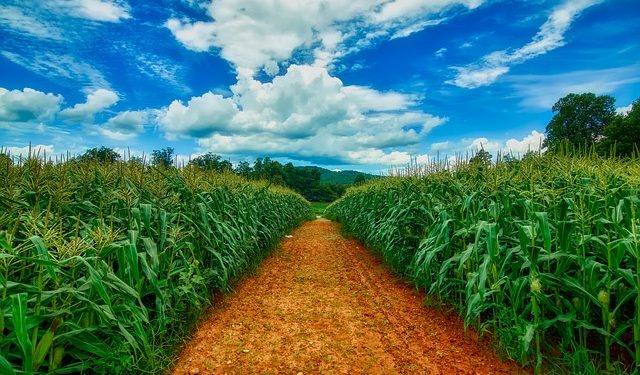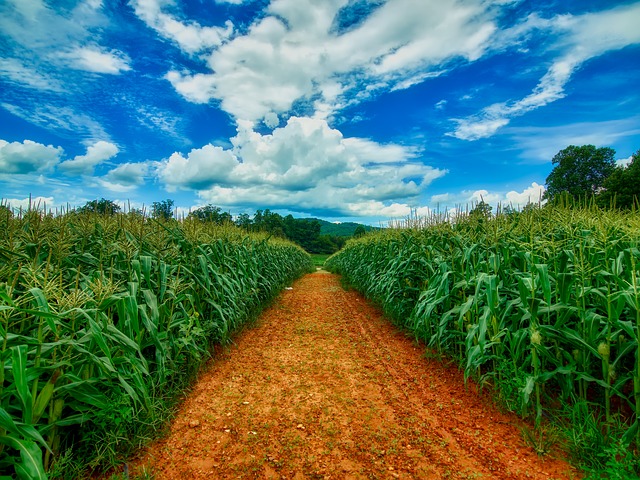“GMOs have been unfairly stigmatized, haven’t they?”
Thus spoke a man in his 30s, a sympathetic expression on his face, as he took a bite of genetically modified papaya and listened to our story about how they saved Hawaii’s smallholder farmers from the devastation of the ringspot virus.
Variations on his comment were echoed by many of the thousands who stopped by for a sample of the GMO apples, pineapple and papaya we were distributing from the Alliance’s Modified food cart on the Washington Mall last week.
“I get it,” said a teenaged boy, as he sampled the non-browning Arctic Apples developed to reduce food waste. “It’s all about sustainability.”
“Science fruit!” proclaimed a 20-something woman after hearing us explain how the tools of biotechnology had been used to introduce traits like virus-resistance in papayas, a pink hue and higher lycopene content in pineapple.
“That’s so cool,” exclaimed another young woman.
“How do they do that?” asked a middle-aged man.
“The magic of science,” marveled an elderly couple.
“Where can I get these?” was the most common question. “Are they in my stores?”
Sadly, none of the fruits we were sharing are widely available. The apples, grown in Washington state, are slowly making their way east as production expands. The pineapples remain an expensive novelty item, sold mostly online and occasionally in major grocery chains. The papaya, grown in Hawaii, are mostly consumed in-state, though some are shipped to Japan and the West Coast.
Actually, Mother Nature was modifying plants long before humans evolved, using Agrobacterium — the very same bacterium that scientists typically use to create GM crops — to shuttle genes between various plant species, like sweet potatoes. Recent research shows some 1 in 20 flowering plants are naturally transgenic, or GMO.
Another man also rejected a sample, saying “never eat what your great-grandmother didn’t eat.” Well, depending on great-grandma’s age, that would include everything from vegan cheese and cauliflower pizza to fast food and energy drinks. So perhaps that standard needs updating.
Invariably, though, people said yes, they would like to try some GMO fruit. And after they sampled it, their responses became yes, yes, yes!
The moms, whether with babies in strollers, toddlers in tow, or a gaggle of adolescents and teens, were especially enthusiastic — some at the prospect of no longer using rubber bands to keep the cut apple they send to school from browning by lunch time; others because their kids were happily eating fruit.
I wondered if the influence of Zen Honeycutt and her anti-GMO Moms Across America was waning — or never was as great as claimed.
Alliance for Science media monitoring and research have repeatedly shown that anti-GMO activists are a very small, but loud, voice in this issue. They represent the fringe, with the bulk of Americans having no opinion or little understanding about GMOs.
Those findings were repeatedly reaffirmed by the questions and comments made during our two days on the Washington Mall.
“Why do they say it’s so bad?” asked one man, in an almost conspiratorial whisper as he, his wife and their three children sampled the fruits and proclaimed them good.
My mind clicked through the many answers to that question: the millions raised by anti-GMO groups through a conflict activism model that requires them to keep the debate raging; the system that encourages groups like Earthjustice and Center for Food Safety to sue government agencies over GMOs because they can recover legal fees under the Equal Access to Justice Act; the negative campaigns of US Right to Know funded by the organic industry; intentional disregard of the scientific consensus around GMO safety.
I kept it simple: “There’s been a lot of misinformation put out there about GMOs.”
“So, I shouldn’t buy things that say no GMOs?” asked an older man.
“Only if you want to pay more for a marketing scheme that’s based on fear and misinformation,” I replied, noting that the Non-GMO Project charges food makers for that label — even when there is no GMO version of the product — and they in turn pass on the costs to consumers.
A few others wanted to chat. One college student said her class had discussed GMOs; could she go over the cons with me?
Sure. No, GMOs don’t increase pesticide use; in fact, all the Bt crops work to reduce it. No, they aren’t all corporate crops; the papaya was developed by Cornell University. Yes, farmers can replant the seeds, though like most growers who use hybrids, they choose to buy new seeds each year to ensure the traits remain true. No, big companies don’t control all the patents; in products like GM cowpea and Bt brinjal, they donated the technology.
Others wanted to know how the technology worked and some asked what other crops were being developed.
Well, super nutritious lettuce; crops that can fix their own nitrogen, thus reducing fertilizer use; sweeter and seedless berries; rice that reduces methane emissions; various climate resilient traits in staple crops; and non-allergenic peanuts, to name just a few.
“How about a non-browning avocado?” asked one woman. “Can you modify vegetables to make them taste like meat?” queried a man. “How about a pear that lasts more than one day?” inquired another. “Can you modify my kids to remove all their bad behavior?” joked a harried father of five.
There’s a lot that biotechnology can do to address the pressing issues facing food production in today’s world — if it’s given the chance. The public, as evidenced by the 2,000 people of all ages, races and nationalities who approached Modify with curiosity and delight, certainly seem willing.
US Agriculture Sec. Tom Vilsack and Deputy Sec. Dr. Jewel H. Bronaugh, who stopped by our booth and extolled both the good taste of the fruit and the value of the land grant universities that conduct biotech research, definitely get it.
And the young people, who were raised with technology and now face the specter of a rapidly warming climate, seemed more than willing to accept a future with GMO food in it.
It isn’t easy overcoming the seeds of mistrust, fear and falsehoods that activists have sown in the decades since GM technology was introduced. But slowly and surely, one bite at a time, we seem to be winning the misguided war waged against GMO crops.
“They don’t deserve to be demonized,” proclaimed a teenager. “That’s wrong.”
By Joan Conrow
O artigo foi publicado originalmente em Cornell Alliance for Science.






















































